Find Help
More Items From Ergsy search
-

Selecting a Mortgage Broker - how they differ and what to watch out for
Relevance: 100%
-

5 Broker Exclusive Buy to Let Mortgage Lenders you need to know about as a Landlord
Relevance: 87%
-

Getting the maximum mortgage in the UK
Relevance: 70%
-

The Ultimate Buy-To-Let Mortgage Breakdown
Relevance: 66%
-

Turned down for a mortgage? Find out why and what to do
Relevance: 60%
-

Turned down for a mortgage? Find out why and what to do
Relevance: 60%
-

Can a finance broker be liable for mis-selling car finance?
Relevance: 58%
-

How much can I borrow for a mortgage UK - getting the Maximum Mortgage
Relevance: 57%
-

RIGHT TO BUY MORTGAGE - LET ME SAVE YOU TIME AND MONEY
Relevance: 57%
-
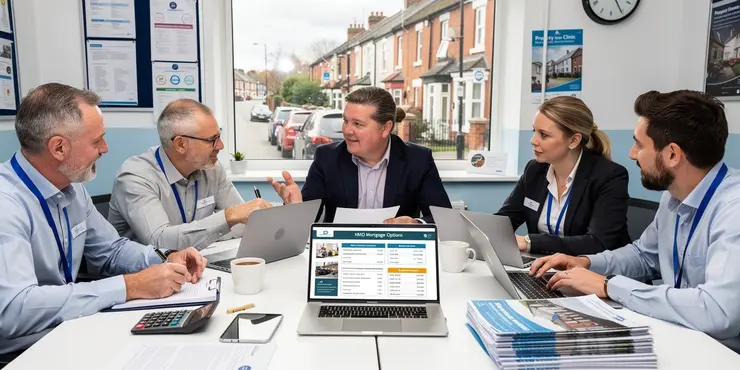
HMO Mortgage Truths - how to get the best Finance option including Bridging Loan Criteria
Relevance: 53%
-

Using 100% of your Second Income for a Mortgage Application
Relevance: 53%
-

Mortgage on Inherited Property - How we can help you with the finance
Relevance: 53%
-
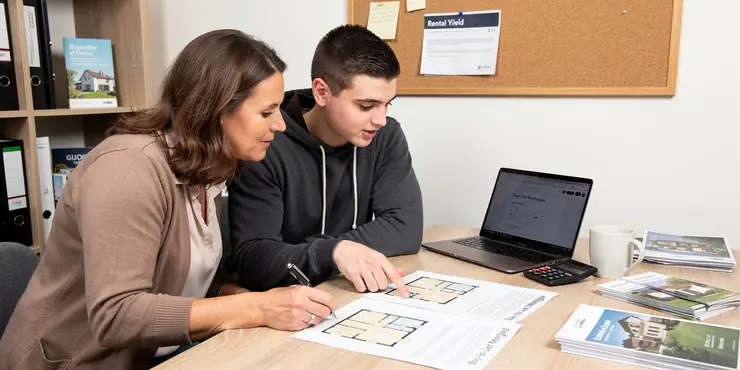
Can I get a Buy to Let Mortgage With My 18 Year Old Son
Relevance: 52%
-
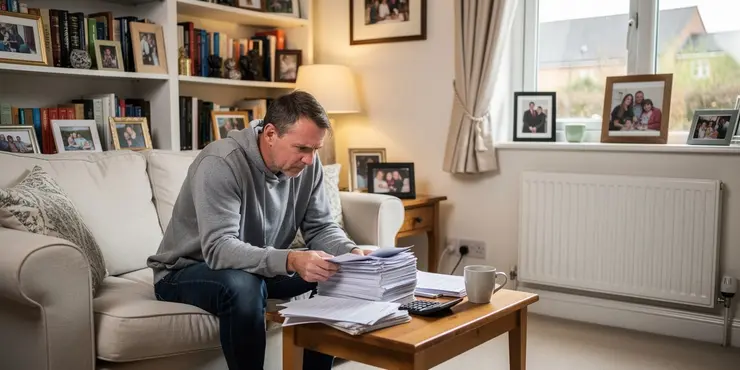
How do interest rate changes affect my mortgage payments?
Relevance: 52%
-

Why people take out Secured Loans and why do some brokers charge so much
Relevance: 52%
-

Uk Buy to Let for Older Clients - Mortgage Options Tips and Criteria
Relevance: 51%
-

Mortgage Turned Down In The UK - Why mortgage applications are declined
Relevance: 48%
-
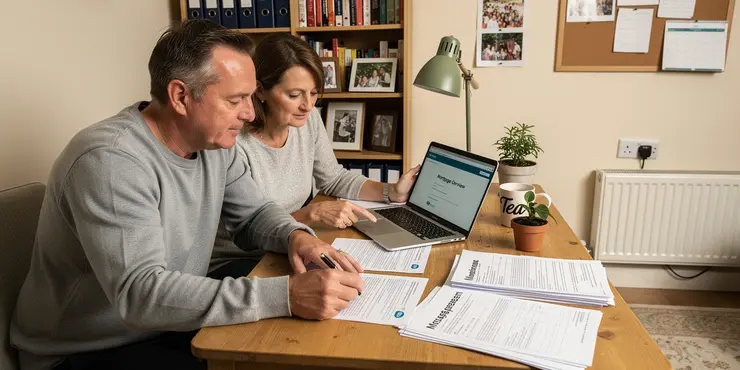
What is an 'interest only' mortgage?
Relevance: 48%
-
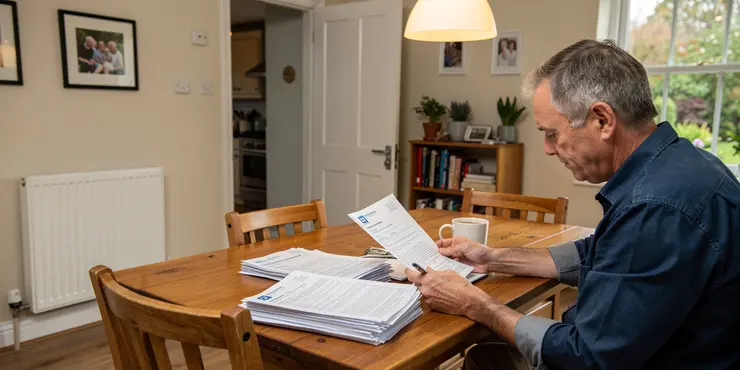
Mortgage Overpayment and Flexible Features Explained
Relevance: 47%
-
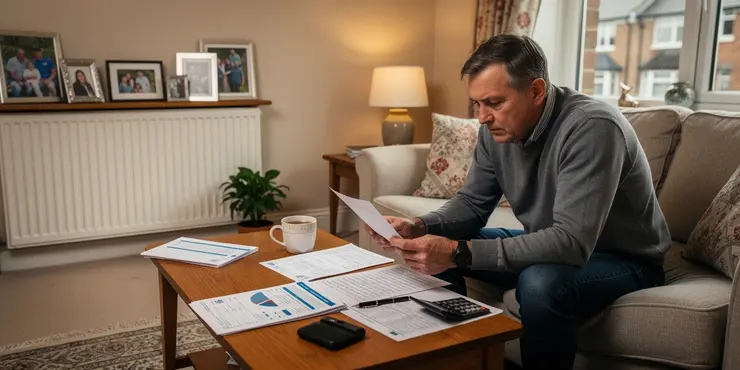
Is it possible to switch my mortgage type if interest rates become unfavourable?
Relevance: 47%
-

Is a mortgage valuation the same as a surveyor's report?
Relevance: 46%
-
What does it mean to "Fix My Mortgage Rate"?
Relevance: 45%
-

Can Stamp Duty be included in a mortgage in the UK?
Relevance: 45%
-

Highest Income Multiple Mortgage Lenders Revealed - Good and Bad Points
Relevance: 44%
-

What is an energy broker and should I use one?
Relevance: 44%
-

Will my fixed-rate mortgage payments change with interest rate fluctuations?
Relevance: 44%
-

Is there assistance available for rent or mortgage payments?
Relevance: 43%
-

Can I use the surveyor recommended by my mortgage provider?
Relevance: 42%
-

What is a tracker mortgage and how does it respond to interest rate changes?
Relevance: 42%
-

Mortgage Regulator removes the need for further affordability stress tests
Relevance: 41%
-

UK Mortgage Rules Lenders Don't Talk About - Debt To Income Ratio
Relevance: 41%
-

Can Mortgage lenders work from my own Survey Valuation Report?
Relevance: 41%
-

What should I do if I can't afford my mortgage payments due to rising interest rates?
Relevance: 39%
-

First Time Buyer Buy to Let Finance Options. Lending Criteria on Mortgage and Bridging Finance
Relevance: 39%
-

Remortgage within 6 Months on the open market value Residential or Buy to Let Properties
Relevance: 38%
-

First Time Buyer Buy to Let Finance Options. Lending Criteria on Mortgage and Bridging Finance
Relevance: 38%
-
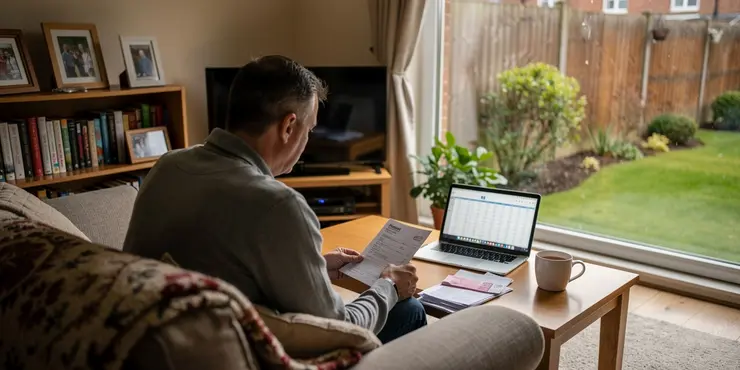
Should you Pay down your Residential Mortgage?
Relevance: 38%
-

How to Buy property with your children under the age of 18 and get Buy to Let Mortgage.
Relevance: 36%
-

Will the surveyor's report affect the mortgage offer?
Relevance: 32%
-

First Time Buyer UK - Own Outright vs Help to Buy vs Shared Ownership
Relevance: 24%
Selecting a Mortgage Broker
Understanding the Role of a Mortgage Broker
A mortgage broker acts as an intermediary between you and potential lenders, helping you find and apply for the best mortgage deals available. Unlike direct lenders, brokers have access to a wide range of products from various financial institutions, which can be beneficial if you have unique borrowing needs or circumstances. In the UK, mortgage brokers can be valuable allies in navigating the complex landscape of home financing.
Types of Mortgage Brokers
Mortgage brokers generally fall into two categories: 'whole of market' brokers and 'tied' brokers. Whole of market brokers have access to a comprehensive range of mortgage products from numerous lenders, providing a broad spectrum of options. Conversely, tied brokers typically work with a limited number of lenders, which might restrict the selection. Understanding the differences between these options can help you choose a broker who offers the most variety in loan products.
Evaluating Qualifications and Expertise
In the UK, mortgage brokers must be authorised and regulated by the Financial Conduct Authority (FCA). To ensure the broker you choose is reputable, look them up in the FCA register. Experience and a history of successful client interactions can also be a good indicator of a broker's reliability. Check reviews and ask for testimonials to understand their level of service and expertise better.
Fee Structures to Consider
Mortgage brokers may charge fees in various ways, including a fixed fee or a commission from the lender. Some might offer no-fee brokerage services while receiving payment from the lenders they place your mortgage with. Ensure you understand any fees involved and what they cover. Transparency in fee structures is crucial to avoid unexpected costs down the line.
What to Watch Out For
Be wary of brokers who push you toward certain lenders or specific mortgage products without justifiable reasoning. This could indicate a conflict of interest, especially if they receive higher commissions from those lenders. Always ensure the advice provided is in your best interest. Additionally, avoid brokers who promise guaranteed acceptance or overnight approval, as these statements can be misleading.
Conclusion
Choosing the right mortgage broker in the UK requires research and careful consideration. By understanding the types of brokers available, evaluating their qualifications, and being mindful of their fee structures, you can make an informed decision that aligns with your financial goals. Always ensure the broker you choose is transparent about their offerings and prioritizes your mortgage needs above all else.
Selecting a Mortgage Broker
Understanding the Role of a Mortgage Broker
A mortgage broker is someone who helps you find a loan to buy a house. They talk to different banks and lenders to find good deals. Unlike going directly to a bank, brokers can look at many different loans. This is helpful if you have special needs or problems borrowing money. In the UK, brokers can make getting a loan easier and less confusing.
Types of Mortgage Brokers
There are two main types of mortgage brokers: 'whole of market' brokers and 'tied' brokers. Whole of market brokers can show you many loans from lots of places, giving you lots of choices. Tied brokers only work with a few lenders, so they have fewer options. Knowing these differences helps you pick the right broker, with more choices for loans.
Evaluating Qualifications and Expertise
In the UK, mortgage brokers need to be authorised by the Financial Conduct Authority (FCA). You should check if your broker is allowed by looking them up in the FCA register. It's also good to see if they have lots of experience and happy clients. Reading reviews or asking for recommendations can tell you how good they are at their job.
Fee Structures to Consider
Mortgage brokers can charge money in different ways. They might have a fixed fee, or get paid by the lender when you choose their loan. Some brokers do not charge you directly because they get paid by lenders. It's important to understand all fees so there are no surprises later. Make sure everything about fees is clear and honest.
What to Watch Out For
Be careful if a broker tries to make you pick certain loans for no clear reason. This might mean they get more money from those lenders. Always check if the advice is good for you. Also, watch out for brokers who say they guarantee you’ll get a loan or get approved really fast. These promises can be untrue.
Conclusion
Picking the right mortgage broker in the UK means doing some homework. Understand the different types of brokers, check their qualifications, and know how they charge fees. This helps you make a smart choice that fits your money plans. Always choose a broker who is honest about what they offer and who puts your needs first.
Frequently Asked Questions
What does a mortgage broker do?
A mortgage broker acts as an intermediary between you and potential lenders. They help you find a mortgage that suits your needs and can offer advice on mortgage products and terms.
How does a mortgage broker differ from a bank?
A bank can only offer you its own mortgage products, while a broker can access a range of products from different lenders, giving you more options.
How much does it cost to use a mortgage broker?
Some mortgage brokers charge a fee for their services, while others receive commission from lenders. It's important to ask about fees upfront.
Is it better to use a mortgage broker or go directly to a lender?
It depends on your situation. Brokers can provide access to exclusive deals and offer advice, but going directly to a lender might be preferable if you have a preferred bank or need a straightforward mortgage.
What qualifications should a mortgage broker have?
In the UK, mortgage brokers must be authorised by the Financial Conduct Authority (FCA) and often hold a qualification like the CeMAP (Certificate in Mortgage Advice and Practice).
How do mortgage brokers get paid?
Brokers typically earn money through fees paid by the borrower or commissions from lenders, or a combination of both.
What should I look for when choosing a mortgage broker?
Look for experience, knowledge of the market, transparency about fees, good communication, and positive reviews or recommendations.
Are all mortgage brokers independent?
Not necessarily. Some brokers are tied to specific lenders and can only offer those products, while independent brokers have access to a wider range of lenders.
Can a mortgage broker help with bad credit?
Yes, a good broker can help find lenders who offer mortgages to people with bad credit, though these might come with higher interest rates.
Is a mortgage broker the same as a financial advisor?
No. A mortgage broker specifically helps with finding a mortgage, whereas a financial advisor can help with a variety of financial planning issues beyond just mortgages.
How long does it take to get a mortgage through a broker?
The process can vary but typically takes between a few weeks to a couple of months, depending on the complexity of your situation and the lender's processing times.
Do mortgage brokers offer better deals than my bank?
Not always, but they have access to a wider range of products and exclusive deals that might not be available directly to consumers.
Are mortgage brokers regulated in the UK?
Yes, mortgage brokers in the UK are regulated by the Financial Conduct Authority (FCA), which oversees their activities to protect consumers.
Can I use an online mortgage broker?
Yes, many brokers operate online and can offer services remotely, which can be convenient, though you'll still need to assess their competency and service quality.
What red flags should I watch out for in a mortgage broker?
Be wary of brokers who are not transparent about their fees, who push you towards unaffordable loans, or who lack proper credentials or FCA authorisation.
What does a mortgage broker do?
A mortgage broker helps you find a loan to buy a house.
They talk to banks to find the best loan for you.
A broker can explain things to make it easier to understand.
They do the hard work so you don’t have to.
You can ask someone you trust to help, like a family member or friend.
A mortgage broker is someone who helps you find a loan to buy a house. They work with you and the people who lend money for houses. The broker helps you find the best loan that fits what you need. They can also give you advice about loans and how they work.
What's the difference between a mortgage broker and a bank?
A mortgage broker helps you find a loan to buy a house. They talk to many banks to find the best loan for you.
A bank gives you money directly for your loan. You only get loans from that bank.
Helpful tools:
- Ask someone to read with you.
- Use a dictionary to understand new words.
- Look for videos that explain mortgages.
If you go to a bank, they can only give you their own loans for buying a house. But if you talk to a broker, they can show you lots of different loans from other places. This gives you more choices.
What do you pay a mortgage helper?
Some people who help you get a mortgage might ask you for money. Others get paid by the bank. Always ask how much they will charge at the start.
Should I talk to a mortgage broker or go straight to a bank?
When you need to borrow money to buy a house, you have two choices:
- Talk to a mortgage broker. They help you find the best loan by looking at different banks.
- Go straight to a bank. You borrow money only from that bank.
Think about these things:
- A broker can show you many loans.
- Going to a bank is simpler because you deal with just one place.
If you want help, ask someone you trust or use simple tools like pictures and charts to understand better.
Choosing between a broker and a bank depends on what you need. A broker can find special deals and give you advice. But if you like your bank and want a simple loan, it might be better to go straight to the bank.
What does a mortgage helper need to know?
A mortgage helper is someone who helps you find a loan to buy a house.
Here are some things a mortgage helper should have:
- Special training to learn about loans.
- A license to help people get a loan.
- Experience in helping people buy homes.
When picking a mortgage helper, ask them about their training and experience. This will help you find someone who knows what they are doing.
If you need help with reading, you can use tools like text-to-speech or ask someone to read it to you.
In the UK, people who help you get a mortgage must have permission from the Financial Conduct Authority (FCA). They usually have a special certificate called CeMAP, which means they know a lot about mortgages.
How do mortgage brokers get paid?
A mortgage broker helps you find a home loan. They get paid in two ways:
- Commission from Lenders: They earn money from banks or lenders, who pay them for bringing in new customers.
- Fees from You: Sometimes, you might need to pay a fee for their help.
Here are some ways to make reading easier:
- Use a ruler or finger to follow the words.
- Read out loud, or ask someone to read with you.
If you have questions, ask a friend or family member to explain.
Brokers make money by getting fees from the person borrowing money. They also get money from the companies that lend money. Sometimes they get money from both places.
What should I think about when picking a mortgage helper?
When picking someone to help you, look for these things:
1. They have done the job before.
2. They know a lot about what they do.
3. They tell you clearly about any costs.
4. They talk to you in a clear and friendly way.
5. Other people say good things about them or recommend them.
Here are some things that can help:
- Ask a friend or family member to help read and choose together.
- Use simple language tools like a reading app or tool.
- Write down what you want to ask or know before you talk to them.
Do all mortgage helpers work for themselves?
No, not always. Some brokers work with just a few banks, so they can only show you those choices. Other brokers work with lots of banks, so they have more options for you.
Can a mortgage broker help if you have bad credit?
Yes, a good helper can find people who will loan money to buy a house, even if you have bad credit. But the money might cost more because of higher interest rates.
Is a mortgage broker the same as a financial advisor?
A mortgage broker and a financial advisor are not the same.
Mortgage Broker:
- Helps you find a loan to buy a house.
- Works with banks and lenders to find the right deal for you.
Financial Advisor:
- Helps you manage money and plan for the future.
- Gives advice on saving, investing, and more.
If you need help:
- Ask someone to read the information with you.
- Use a computer or phone to help you understand words.
No, they are different. A mortgage broker helps you get a mortgage to buy a home. A financial advisor helps with many money things, not just home loans.
How long does it take to get a mortgage with a broker?
Getting a mortgage with a broker can take some time. Here is what you can expect:
- First Step: The broker will ask you questions about money and the home you want to buy.
- Next Steps: They will find the best mortgage for you and help you apply. This part can take a couple of weeks.
- Final Step: The bank or lender will check everything. This can take a few more weeks.
- Total Time: Usually, it takes about 1 to 2 months.
Here are some tools to help:
- Checklists: Use a list to make sure you have all the papers you need.
- Calendar: Mark important dates, like meetings with your broker.
- Reminders: Set phone reminders to keep track of deadlines.
The time it takes can be different for everyone. Usually, it takes a few weeks or maybe a couple of months. It depends on how complicated things are for you and how fast your lender works.
Can mortgage helpers find better deals than my bank?
A mortgage helper is someone who helps you find a loan to buy a house.
Your bank gives you loans too.
Both can help you get a house loan. But who has the better deal?
- Compare: Ask both the mortgage helper and the bank what they offer.
- Ask Questions: Talk to them about fees and interest rates.
- Use a Calculator: Try an online calculator to see how much each loan will cost every month.
Remember, it's okay to ask someone you trust to help you decide.
No, not always. But they can get more products and special deals that regular people might not see.
Do mortgage brokers have rules to follow in the UK?
Yes, mortgage brokers in the UK have to follow special rules. These rules help keep you safe when you get a mortgage. The people who make sure the brokers follow the rules are called regulators.
If you need help understanding mortgages, you can ask someone you trust. You can also use websites that explain things in a simple way or use pictures to help you learn.
Yes, mortgage brokers in the UK are watched over by a group called the Financial Conduct Authority (FCA). The FCA makes sure they do the right thing to help and protect people who are getting a mortgage.
Can I get help with mortgages online?
Yes, you can use the internet to find help with getting a mortgage for buying a home.
Websites can explain how mortgages work.
You can talk to a person online who can help you find the best mortgage deal.
This person is called a mortgage broker. They know a lot about mortgages.
You can use a laptop, tablet, or smartphone to do this.
Ask an adult you trust for help if you need it.
Yes, lots of brokers work online. They can help you from far away, which can be easy. But you still need to make sure they do a good job and are helpful.
What warning signs should I look for in a mortgage helper?
Buying a home is a big step, and you may need help from a mortgage helper, who helps you get a loan to buy a house. It's important to find a good helper. Here are some warning signs you should watch out for:
- If the helper wants you to lie or change the truth on your papers, that's a bad sign.
- If they ask for money before helping you, be careful. Good helpers usually get paid after they do their work.
- If they do not explain things clearly or answer your questions, that's not good.
- Check if the helper has a license. This is like a permission slip to do their job.
If you are not sure, ask an adult you trust to help you. You can also use the internet to read about mortgage helpers or ask questions.
Watch out for brokers who aren't clear about their fees, who try to make you take loans you can't afford, or who don't have the right certificates or FCA approval.
Useful Links
This website offers general information and is not a substitute for professional advice.
Always seek guidance from qualified professionals.
If you have any medical concerns or need urgent help, contact a healthcare professional or emergency services immediately.
Some of this content was generated with AI assistance. We’ve done our best to keep it accurate, helpful, and human-friendly.
- Ergsy carfully checks the information in the videos we provide here.
- Videos shown by Youtube after a video has completed, have NOT been reviewed by ERGSY.
- To view, click the arrow in centre of video.
- Most of the videos you find here will have subtitles and/or closed captions available.
- You may need to turn these on, and choose your preferred language.
- Go to the video you'd like to watch.
- If closed captions (CC) are available, settings will be visible on the bottom right of the video player.
- To turn on Captions, click settings .
- To turn off Captions, click settings again.
More Items From Ergsy search
-

Selecting a Mortgage Broker - how they differ and what to watch out for
Relevance: 100%
-

5 Broker Exclusive Buy to Let Mortgage Lenders you need to know about as a Landlord
Relevance: 87%
-

Getting the maximum mortgage in the UK
Relevance: 70%
-

The Ultimate Buy-To-Let Mortgage Breakdown
Relevance: 66%
-

Turned down for a mortgage? Find out why and what to do
Relevance: 60%
-

Turned down for a mortgage? Find out why and what to do
Relevance: 60%
-

Can a finance broker be liable for mis-selling car finance?
Relevance: 58%
-

How much can I borrow for a mortgage UK - getting the Maximum Mortgage
Relevance: 57%
-

RIGHT TO BUY MORTGAGE - LET ME SAVE YOU TIME AND MONEY
Relevance: 57%
-

HMO Mortgage Truths - how to get the best Finance option including Bridging Loan Criteria
Relevance: 53%
-

Using 100% of your Second Income for a Mortgage Application
Relevance: 53%
-

Mortgage on Inherited Property - How we can help you with the finance
Relevance: 53%
-

Can I get a Buy to Let Mortgage With My 18 Year Old Son
Relevance: 52%
-

How do interest rate changes affect my mortgage payments?
Relevance: 52%
-

Why people take out Secured Loans and why do some brokers charge so much
Relevance: 52%
-

Uk Buy to Let for Older Clients - Mortgage Options Tips and Criteria
Relevance: 51%
-

Mortgage Turned Down In The UK - Why mortgage applications are declined
Relevance: 48%
-

What is an 'interest only' mortgage?
Relevance: 48%
-

Mortgage Overpayment and Flexible Features Explained
Relevance: 47%
-

Is it possible to switch my mortgage type if interest rates become unfavourable?
Relevance: 47%
-

Is a mortgage valuation the same as a surveyor's report?
Relevance: 46%
-
What does it mean to "Fix My Mortgage Rate"?
Relevance: 45%
-

Can Stamp Duty be included in a mortgage in the UK?
Relevance: 45%
-

Highest Income Multiple Mortgage Lenders Revealed - Good and Bad Points
Relevance: 44%
-

What is an energy broker and should I use one?
Relevance: 44%
-

Will my fixed-rate mortgage payments change with interest rate fluctuations?
Relevance: 44%
-

Is there assistance available for rent or mortgage payments?
Relevance: 43%
-

Can I use the surveyor recommended by my mortgage provider?
Relevance: 42%
-

What is a tracker mortgage and how does it respond to interest rate changes?
Relevance: 42%
-

Mortgage Regulator removes the need for further affordability stress tests
Relevance: 41%
-

UK Mortgage Rules Lenders Don't Talk About - Debt To Income Ratio
Relevance: 41%
-

Can Mortgage lenders work from my own Survey Valuation Report?
Relevance: 41%
-

What should I do if I can't afford my mortgage payments due to rising interest rates?
Relevance: 39%
-

First Time Buyer Buy to Let Finance Options. Lending Criteria on Mortgage and Bridging Finance
Relevance: 39%
-

Remortgage within 6 Months on the open market value Residential or Buy to Let Properties
Relevance: 38%
-

First Time Buyer Buy to Let Finance Options. Lending Criteria on Mortgage and Bridging Finance
Relevance: 38%
-

Should you Pay down your Residential Mortgage?
Relevance: 38%
-

How to Buy property with your children under the age of 18 and get Buy to Let Mortgage.
Relevance: 36%
-

Will the surveyor's report affect the mortgage offer?
Relevance: 32%
-

First Time Buyer UK - Own Outright vs Help to Buy vs Shared Ownership
Relevance: 24%


